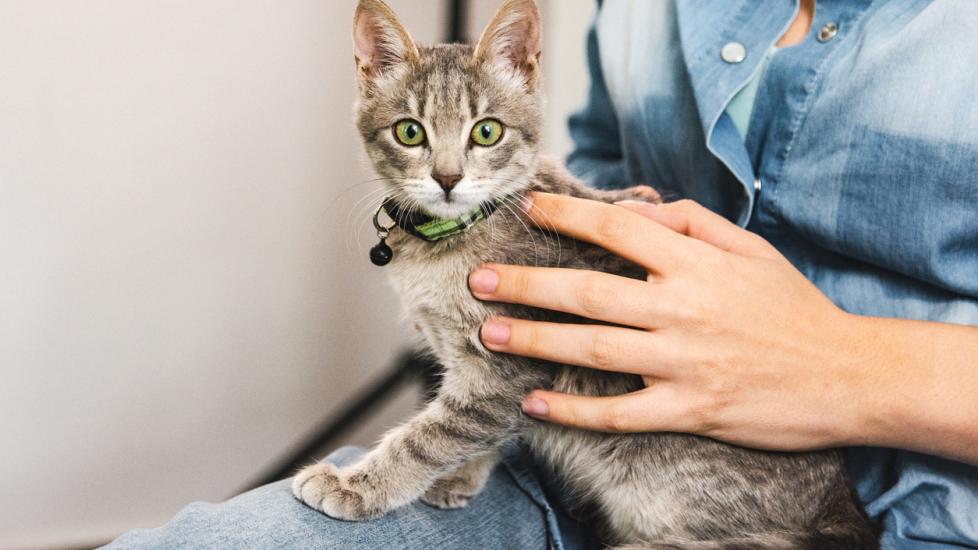Pancreatitis in Cats
What is Pancreatitis in Cats?
The pancreas is an organ located between the stomach and small intestine. Among its functions, the pancreas produces enzymes needed to digest food, as well as the hormone insulin, that helps to regulate blood sugar.
When the pancreas becomes inflamed, the digestive enzymes can activate and start irritating the pancreas itself, causing the pancreas to become inflamed. This condition is called pancreatitis.
In cats, the enzymes can also travel from the pancreas to the gastrointestinal tract and in some situations, this can cause inflammation in the liver, stomach, and small intestine, known as feline triaditis, which in some cases may become life threatening.
Symptoms of Pancreatitis in Cats
When pancreatitis appears suddenly (acute cases), symptoms are typically easy to notice for the pet parent. Symptoms may include:
-
Vomiting
-
Weight loss
-
Decreased appetite
-
Diarrhea or soft stool
-
Abdominal pain
When pancreatitis is chronic, signs may be infrequent and may not be as easily noticeable by the pet parent. Some days the cat may feel fine and other days she may not be as interested in food or may vomit.
Causes of Pancreatitis in Cats
Although in most cases the underlying cause is unknown, pancreatitis can affect any breed and age of cat. Risk factors for pancreatitis in cats include:
-
Obesity
-
An underlying disease such as diabetes, irritable bowel syndrome or cancer
-
Infection
-
Certain drugs
Sometimes, dietary changes or stress can contribute to pancreatitis.
How Veterinarians Diagnose Pancreatitis in Cats
Symptoms of pancreatitis in cats resemble those of other causes, so your veterinarian will likely recommend a baseline blood work and tests to measure the enzyme lipase, which is an enzyme that helps break down fats. High levels of lipase in the blood indicate a higher chance of pancreatitis.
Results from these tests can help determine treatment or indicate if further tests, such as abdominal x- rays or ultrasound, are necessary. Other tests may include clotting times (determining the time in which it can take for blood to clot; useful in determining if spontaneous hemorrhage will occur), cultures and/or biopsy in cases of severe pancreatitis.
Treatment of Pancreatitis in Cats
Pancreatitis is treated with IV fluids, pain and anti-nausea medication, as well as treatment for the underlying cause if that can be determined.
The earlier the disease is treated, the more likely it will resolve without further complications. In some cases, pancreatitis progresses to a more chronic disease or may have lasting complications such as diabetes, that will need to be managed.
In severe cases of pancreatitis, or cases where complications such as feline triaditis, your veterinarian may suggest 24-hour care. However, if numerous blood clots form, a condition called disseminated intravascular coagulation (or DIC), a veterinarian may recommend euthanasia to spare the patient from suffering.
Recovery and Management of Pancreatitis in Cats
When caught and treated early, cats that have suffered from pancreatitis can usually return home to live a happy and healthy life. Cats suffering from chronic pancreatitis may also go on to live a relatively normal life, with some lifestyle changes, that may include an alternative diet, frequent check-ups, and chronic medication.
Pancreatitis in Cats FAQs
Can you treat pancreatitis in cats at home?
Pancreatitis can be a progressive disease so it’s always best to have your cat examined first. If hospital treatment is not an option, the pet parent can work with the veterinarian to treat the cat at home as an out-patient. However, severe cases will require hospitalization.
What is the life expectancy for a cat with pancreatitis?
Most cats that suffer from acute or chronic pancreatitis can go on to live a relatively normal life.
Can a cat recover from pancreatitis and when to euthanize a cat with pancreatitis?
Most cats do recover from pancreatitis, fortunately. When progress is poor and the outcome is grave due to complications such as multi-organ failure and blood clotting (intravascular coagulation), euthanasia may be recommended.
Featured Image: iStock.com/Uplight Pictures
